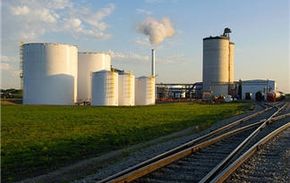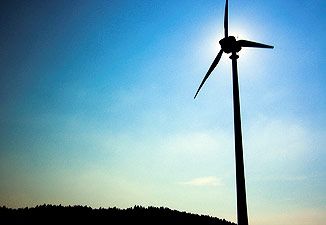Simply stated, biorefining is the conversion of biomass to produce fuel, heat, power and chemicals. There are plenty of arguments for biorefining as the way to power the future, as well as reasons to wonder if we should think twice about the developing energy source.
Biomass is plant matter that can be converted to fuel. Wood is the most obvious example -- if you've started a campfire or used a fireplace, you've "biorefined." Grasses, agricultural and forestry residue, algae are all examples of biomass.
Advertisement

